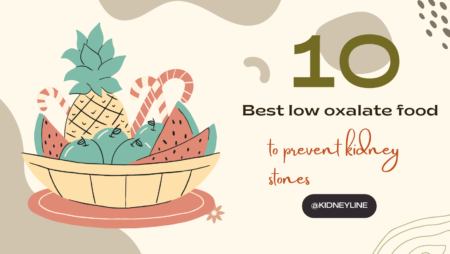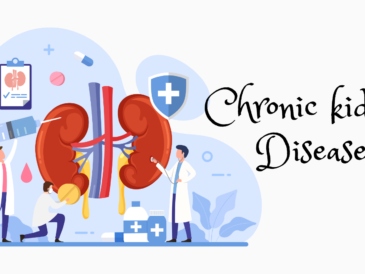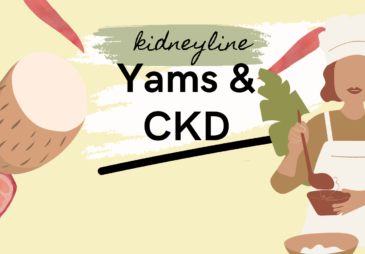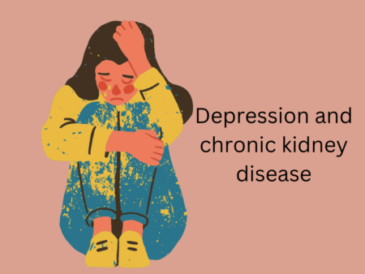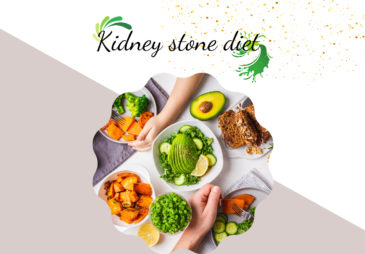Kidney stone is a health condition that affects 12 % of people worldwide. There are different kinds of stones, but calcium oxalate stones are the most common type.
Both dietary and environmental components impact kidney stone formation. Oxalate and calcium-rich diet, certain medications, and uncontrolled body weight may increase your risk of getting kidney stones.
If you pass a lot of oxalate in your urine, your doctor may recommend a low oxalate diet. Many people with kidney stones embark on a low oxalate diet, which is unnecessary. Only people with a high amount of oxalate in their urine need to limit their oxalate intake.
Many foods rich in oxalate are healthy, and you may be struggling with finding a low-oxalate food. This post looks at 10 great low-oxalate foods to prevent kidney stones
1. Banana
Banana is a great-tasting fruit easily found in many countries. It consists of 358 grams of potassium and 3mg of oxalate. Additionally, it contains magnesium and vitamin B6, which are crucial in lowering the danger of kidney stones.
Potassium and magnesium in banana wards off kidney stone in the following ways:
- Bananas’ high potassium concentration can rule out kidney stones by maintaining your body’s calcium and oxalate levels.
- Magnesium binds oxalate in the gut and prevents oxalate reabsorption into the body. Additionally, magnesium prevents oxalate from crystallizing into stones in the urine.
- Vitamin B6 in bananas may lower oxalate levels in your body
2. Watermelon
Watermelon is one of the best naturally occurring food to prevent kidney stones. It has a high water content (92%), high potassium content and low oxalate content. Remember that water is very important in kidney stone prevention.
According to a 2018 paper, watermelon pulp reduces the precipitation of oxalate and calcium in the urine and makes urine more alkaline. These properties make it an excellent food choice if you have kidney stones
3. Pineapple
Fresh pineapple is another low-oxalate fruit to include in your diet if you have kidney stones. It has anti-inflammatory qualities which is good for your overall health. The nutrients in pineapple can prevent kidney stones in the following ways:
- Pineapple contains 4mg of oxalate and thus maintains the amount of oxalate in urine. However, you should be cautious while eating canned pineapple because it contains excessive oxalates.
- It contains 85% water which keeps your body hydrated. Remember that staying hydrated is the best way to lower your risk of kidney stones.
- Citrate in pineapple prevents the formation of kidney stones by inhibiting the binding of calcium and oxalate.
- Additionally, it contains a lot of potassium and protects your body from excreting too much calcium.
4. Apple
Another pleasant-tasting fruit good for kidney stones is the apple and its juice. It has low oxalate and is rich in fiber and antioxidants like citrus fruits. With only 1mg of oxalate, the apple will make a great snack for you without increasing your risk of kidney stones.
5. Pear
For the health of your kidneys, eating pears is quite beneficial. They are low in oxalate (2mg) and sodium, so consuming them will decrease the risk of developing kidney stones. According to a recent study, pears contain a substantial amount of malic acid that helps in averting kidney stones.
Moreover, pear contains bromelain that helps in dissolving kidney stones.

6. Cabbage
Cabbage is one of the underrated green vegetables to prevent kidney stones. It contains only a small amount of oxalate (1 mg) and potassium. Furthermore, it also consists of significant amounts of phytonutrients and vitamins, including folic acid, vitamin B6, and vitamin K. Cabbages are great in salads.
You could pair it with yam, potatoes, rice or plantain to give you a filling meal.
Here are some benefits of cabbage:
- Vitamins and minerals present in cabbage are sources of natural kidney regeneration.
- It contains insoluble fibers that help in the excretion of toxins from your body.
- Besides, a low amount of sodium in cabbage maintains your blood pressure and keeps you and your kidneys healthy.
7. Mushroom
Mushroom is a form of fungi and have low calcium and oxalate content. Vitamins B and D present in mushrooms aid in regulating your kidney function and help to ward off kidney-related disorders. There are almost 3000 types of mushrooms, and out of them, Poria mushroom has antioxidant properties that prevent kidney stones.
Remember that all mushrooms are not edible so you should be careful when buying or picking them.
Some additional advantages of mushrooms are listed below:
- It helps in water reabsorption in your body.
- Beta-glucan in mushrooms helps in boosting your immune system.
- It keeps your kidneys healthy by maintaining a balanced acid-base ratio.
- Above all, it aids in keeping your blood pressure stable and lessens renal inflammation.
8. Onions
Onions can be your best remedy for renal disease or kidney stones. They are a good source of vitamin C, calcium, and phosphorus. Since they are low in oxalate, you can use them liberally in meals.
Onions also contain the antioxidant quercitin, which aids in detoxifying and protects the kidneys from free radical destruction. It also aids in lowering your high blood pressure, which slows the progression of kidney disease.
9. Peas
People eat peas everywhere in the world. There are different types of peas; green peas, split peas, and black eyes peas. Among all these types, green peas are most effective for kidney stones as ½ cup of green peas contains 1 mg of oxalate. Green peas are the best food to avoid kidney stones because of their low oxalate concentration.
Moreover, green peas are an abundant source of protein and fiber. Half a cup of green peas has 3.5 grams of fiber and 4 grams of protein. Besides, split peas are also rich in protein and low oxalate food to prevent kidney stones and other diseases.
Thus, try to increase your consumption of peas and beans rather than non-vegetarian protein sources to reduce your risk of kidney stones.
10. Broccoli
Broccoli is a nutrient-rich spinach plant. It consists of a small amount of oxalate and a rich amount of vitamins C and D. According to recent research: it also contains a significant amount of chromium, magnesium, phosphorous, antioxidants, and phytochemicals.
Regular use of broccoli will significantly improve your kidney stone disease because of its high concentration of antioxidants, vitamins C, E, and D, and beta-carotene. All these elements help in the elimination of kidney stones from your body.
Hence, Broccoli is a low-sodium, low-phosphorus, and low-oxalate food that is excellent for treating all renal conditions, from kidney stones to chronic kidney disease.
Bottom Line
If you have a kidney stone, you may take every precaution to treat the problem and stop further stone formation or growth. However, your diet plays a significant role in the treatment of kidney stones.
If you have calcium oxalate stones, embarking on a low oxalate diet may help lower your risk of forming new stones. It is also important to stay hydrated considering the key role of water in the treatment of kidney stones.
Remember that not everyone with kidney stones will benefit from a low oxalate diet. So, it is essential that you discuss this with your medical team before beginning these dietary modifications.
References
https://www.hindawi.com/journals/au/2018/3068365/
https://www.mdpi.com/2072-6643/12/3/779
https://www.tandfonline.com/doi/abs/10.1080/87559129.2020.1725890
https://www.sciencedirect.com/science/article/abs/pii/S0753332217333085
https://pubmed.ncbi.nlm.nih.gov/26914114/
https://www.ncbi.nlm.nih.gov/pmc/articles/PMC5087632/
https://www.sciencedirect.com/science/article/pii/B9780128127803000015
